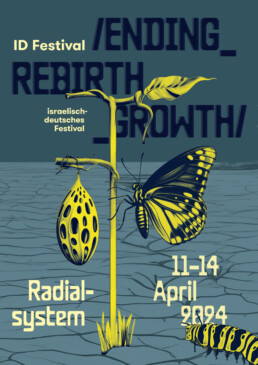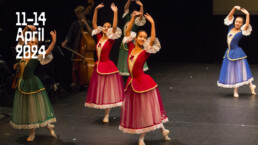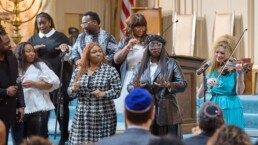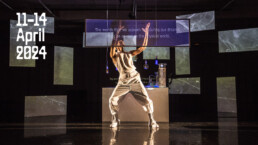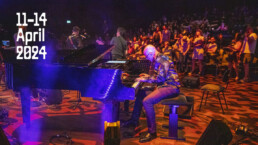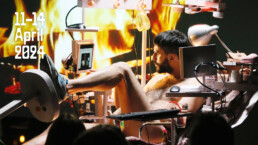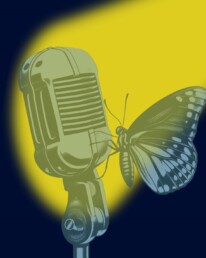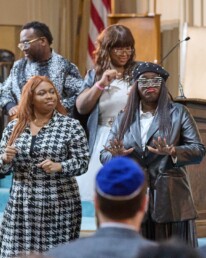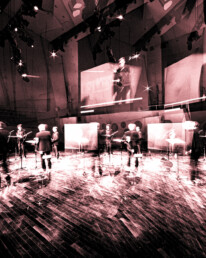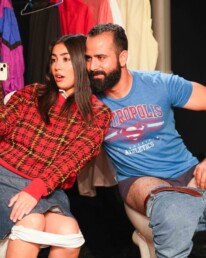Über das ID Festival
Das ID Festival #7 lädt zu einem vielfältigen Programm aus Theater, Konzerten, interaktiven Formaten, Workshops und Ausstellungen von rund 120 Künstler:innen und Performer:innen aus Israel, Deutschland und den USA in die Räume des langjährigen Festivalpartners Radialsystem ein. Die letzte von insgesamt sieben Festivalausgaben steht unter dem Motto /ENDING_REBIRTH_GROWTH/.
Das ID Festival ist Plattform der blühenden israelischen Kulturszene in Deutschland. Seit der Gründung 2015 fördert das mit dem EFFE-Label für Exzellenz in der europäischen Kulturlandschaft ausgezeichnete israelisch-deutsche Festival unter der Leitung von Ohad Ben-Ari die Zusammenarbeit zwischen Künstler:innen und Institutionen beider Länder.
Festivalausgabe #7
Mit /ENDING_REBIRTH_GROWTH/ präsentieren wir unsere 7. Ausgabe, die gleichzeitig den Abschluss eines vollständigen Zyklus von sieben ID Festival-Ausgaben markiert. Durch das Prisma der Kunst setzen wir uns mit verschiedenen Enden auseinander, darunter das Ende des Lebens, der Demokratie, des zionistischen Traums und der menschlichen Kunst durch intelligente Maschinen. Wir wollen untersuchen, wie verschiedene Enden den Weg zu neuen Anfängen ebnen und persönliches sowie gesellschaftliches Wachstum bewirken können.
